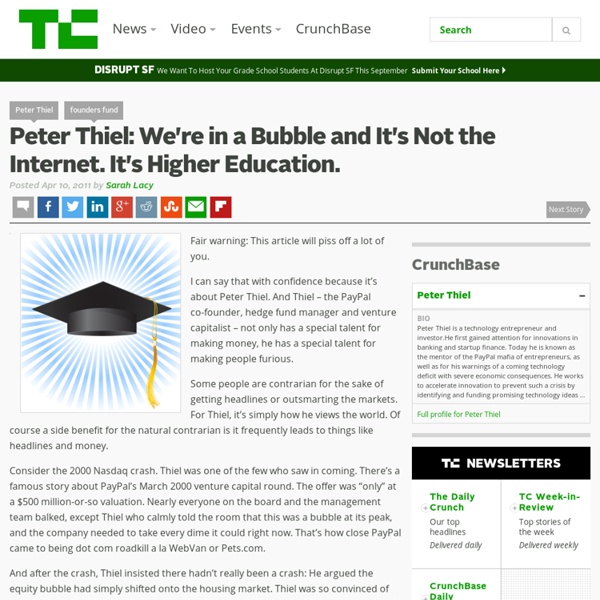A pedagogical framework for mobile learning: Categorizing educational applications of mobile technologies into four types
Yeonjeong Park Virginia Tech, USA Abstract Instructional designers and educators recognize the potential of mobile technologies as a learning tool for students and have incorporated them into the distance learning environment. However, little research has been done to categorize the numerous examples of mobile learning in the context of distance education, and few instructional design guidelines based on a solid theoretical framework for mobile learning exist. In this paper I compare mobile learning (m-learning) with electronic learning (e-learning) and ubiquitous learning (u-learning) and describe the technological attributes and pedagogical affordances of mobile learning presented in previous studies. I modify transactional distance (TD) theory and adopt it as a relevant theoretical framework for mobile learning in distance education.
Is U.S. Higher Education A Bubble Economy? (Infographic Video)
Plenty of smart people seem to think there’s a bubble in higher education. And for good reason: The cost of a college education is skyrocketing and student debt is growing out of control, at the very same time that college graduates are struggling to find jobs. When they do, it’s often in positions that hardly require any of the "critical thinking" they were told a college education would teach them. Critics might count all this as mere alarmism--but the data backing up the trends is so freakin’ crazy. Just watch this video created by Education News.
The Google+ Guide For Educators
Home » Education, Social Media Written by Grace2 August 2011 Unless you've been living under a rock the last month, undoubtedly you've heard of the new social networking site everyone has been raving about: Google+. All this buzz has generated some great articles (my to-read pile just keeps growing!) so it's been hard to find just one favorite Google+ area to discuss...that's why I've decided to share some of my favorite articles to help get educators started. Here's my Google+ Guide for Educators:
Hacking Education (continued)
Last fall I wrote a post on this blog titled Hacking Education. In it, I outlined my thoughts on why the education system (broadly speaking) is failing our society and why hacking it seems like both an important and profitable endeavor. Our firm, Union Square Ventures, has been digging deeply into the intersection of the web and the education business in search of disruptive bets we can make on this hacking education theme.
100 Free Online Ivy League Courses
By Alisa Miller Even those without top notch grades can now go to Ivy League schools. With the the availability of open courseware classes coming out of some of the finest schools in America, the range of subjects is astounding.
Hacking Education
I spent a lot of time on this blog in the past month exhorting everyone to give teaching tools to the neediest public schools. I did that because education is possibly the most important thing we can do for our world and our children. But I also believe the the public school system in this country is badly broken. And it’s not just the public school system in the US. It’s the entire education system that’s stuck in the past.
Universities
See our list of the top schools offering free courses online. Learn about what types of courses are available to find the school and courses that are right for you. Online Courses for Credit Plenty of free resources are available online for students who want to learn a new topic, but these free options don't generally lead to college credit. Students who want to earn college credit might want to look for online options that charge a small fee in exchange for access to online lessons.
Blog – The Price of Tutoring
Aaron is a cofounder of Tutorpsree, and a tutor. He’s the resident numbers dork (well, so is Paul), and writes about what we’ve learned and how it influences what we do The start of the new year means it’s time to take a look at overall trends in the tutoring universe. We’ve sliced up the profiles of 10,000 tutors to get a sense of pricing dynamics across the US. We’ve also pulled data out of nearly 80,000 subjects listed by tutors on Tutorspree as a way of understanding what it is that people want to teach.
How Learning Environments Are Changing
Culture Digital Tools Teaching Strategies A school’s perimeters are no longer the only place students learn. Kids are learning about the world from their homes, from the community, and anywhere it’s available to them. Here’s a look at trends in the future of learning environments. The Three Key Trends 1.
Student Loans and the Education Bubble
I was early for a meeting on friday afternoon and found myself sitting in a chat between a University President and members of the faculty. One of the faculty members asked the President about the "education bubble." The President gave his thoughts on the topic and then unexpectedly turned to me and asked what I thought. I am a product of student loans.



